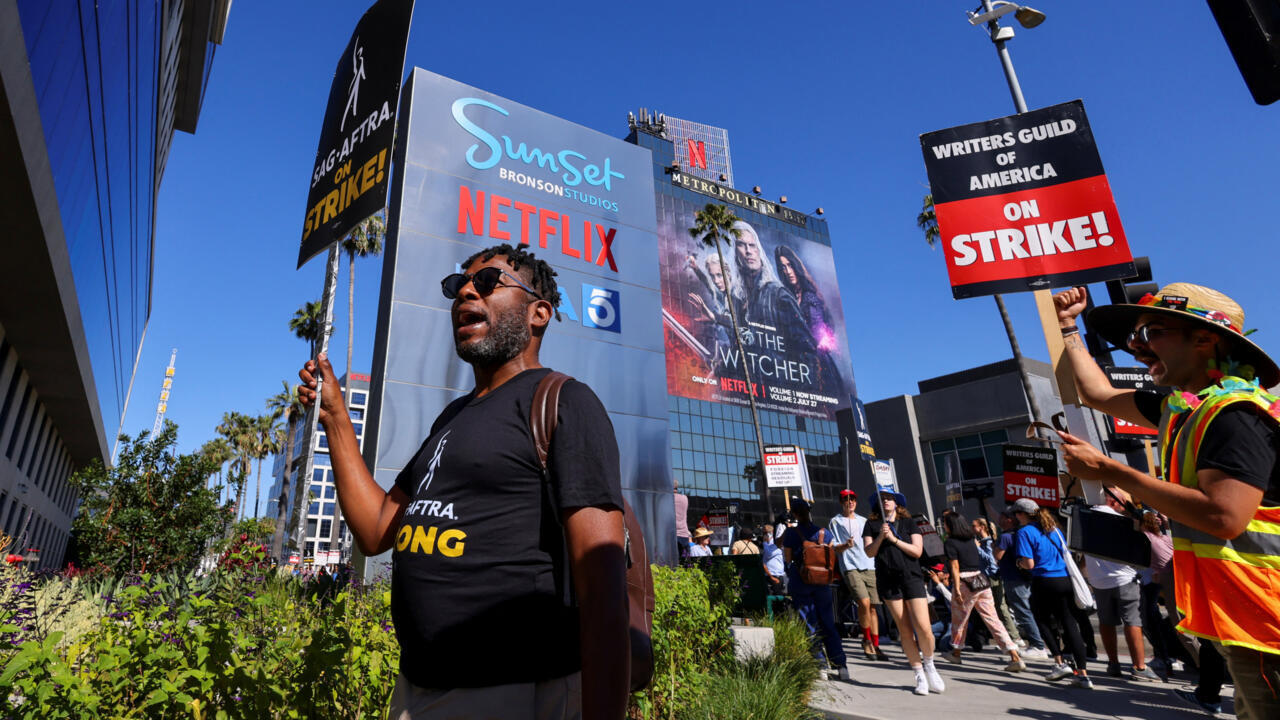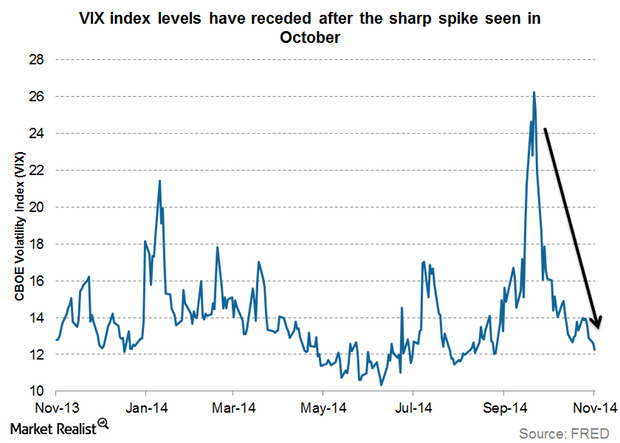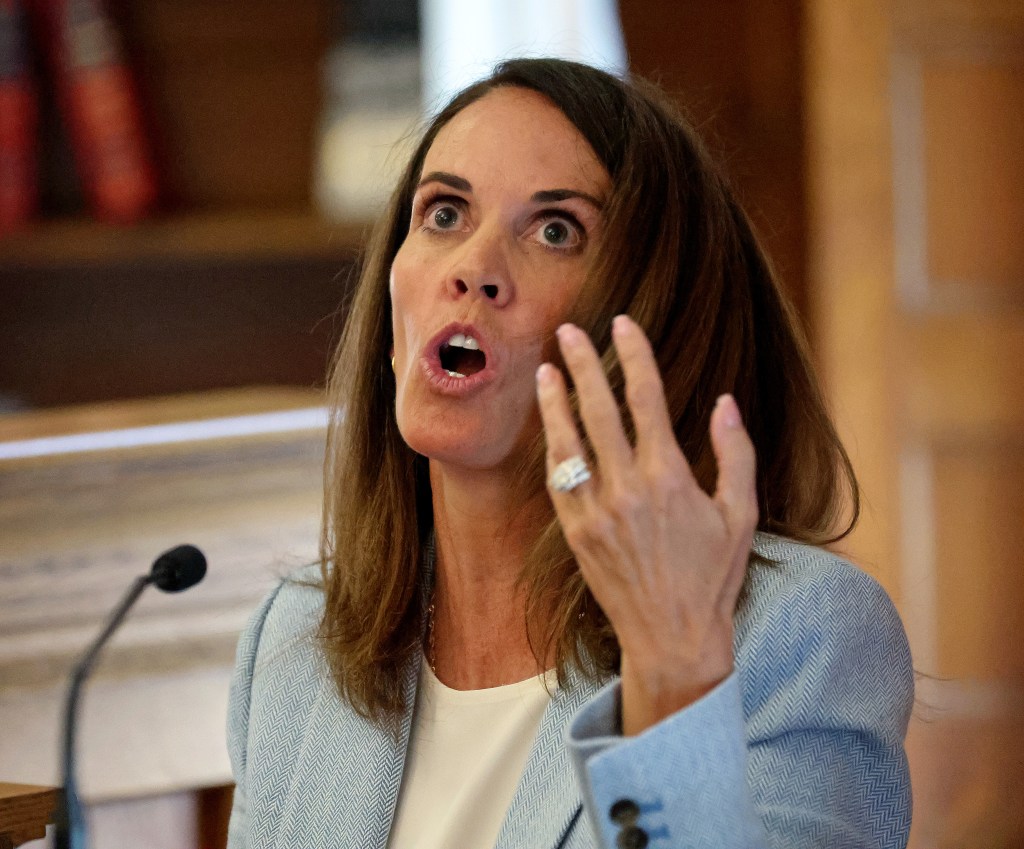Double Trouble In Hollywood: The Impact Of The Writers' And Actors' Strike

Table of Contents
The Roots of the Double Strike
The current Hollywood strike isn't a spontaneous eruption; it's the culmination of years of simmering discontent within the entertainment industry. Both the WGA and SAG-AFTRA cite several key issues pushing them to this drastic measure. These core problems highlight a growing chasm between the creative talent and the corporate giants profiting from their work.
-
Diminishing residuals in the streaming era: The traditional model of compensating actors and writers through residuals – payments for each subsequent airing of their work – has been severely eroded by the rise of streaming services. Streaming platforms often pay a flat fee, regardless of viewership, leaving writers and actors with significantly less compensation than under the old broadcast model. This is a central point of contention in the actors' strike.
-
Concerns about the use of AI in writing and acting: The rapid advancement of artificial intelligence presents a significant threat to the livelihoods of writers and actors. Both unions express serious concerns about the potential for AI to replace human creativity, leading to job displacement and a devaluation of human talent. The fear is that AI could be used to generate scripts or create digital likenesses of actors without proper compensation.
-
Demands for increased minimum wages and benefits: The cost of living, especially in major entertainment hubs like Los Angeles, has skyrocketed, while wages for many writers and actors haven't kept pace. The unions are demanding increases in minimum wages and improved healthcare benefits to reflect the true cost of working in the industry.
-
Lack of creative control for writers and actors: Writers and actors often find themselves with limited say in the final product of their work. The unions are pushing for greater creative control and input, ensuring their voices are heard throughout the creative process.
-
The struggle for fair compensation in relation to streaming service profits: Streaming services are generating billions in revenue, yet the share going to the creative talent often lags far behind. The unions argue for a fairer distribution of profits that recognizes the essential role of writers and actors in the success of these platforms. This ties directly into the debate surrounding residuals.
The Immediate Impact on Production
The dual strike has brought Hollywood to a standstill. The immediate impact is widespread and devastating, affecting not just those directly involved but the entire ecosystem that supports the industry.
-
Delays and cancellations of major film and TV projects: Numerous high-profile movies and television shows have been indefinitely delayed or canceled, creating a massive backlog of unfinished projects and uncertainty for the future of the entertainment calendar.
-
The ripple effect on related industries (catering, transportation, etc.): Thousands of workers in related industries – from catering and transportation to location scouting and post-production – have been left without work, highlighting the extensive economic ramifications of the strike.
-
The financial impact on studios and production companies: The halt in production is costing studios and production companies millions of dollars daily. This financial strain could lead to significant restructuring and potentially job losses in areas outside the creative sector.
-
Uncertainty surrounding upcoming awards seasons (Emmys, Oscars): The ongoing strike casts a significant shadow over the upcoming award seasons. The lack of new content may lead to changes in eligibility criteria or even postponed ceremonies.
-
The impact on independent film and television productions: Independent productions, with their already limited resources, are especially vulnerable during the strike, facing even greater challenges to complete their projects.
The Long-Term Effects on the Entertainment Landscape
The long-term implications of this "double trouble" in Hollywood are potentially far-reaching and transformative for the entire entertainment landscape.
-
Potential renegotiation of streaming contracts: The strike could force a major renegotiation of contracts between studios and streaming services, potentially leading to fairer compensation models for writers and actors.
-
Increased focus on international productions: With production stalled in Hollywood, studios may increasingly look to international markets for film and television production, shifting the global balance of power in the industry.
-
The rise of alternative forms of entertainment: The prolonged absence of new Hollywood content might accelerate the growth of alternative entertainment forms, such as podcasts, video games, and independent online content creators.
-
Long-term shifts in the power dynamic between studios and talent: The success of the strike could significantly alter the power dynamic between studios and creative talent, potentially giving writers and actors a stronger voice in negotiations and contract terms.
-
The possibility of future strikes and labor disputes: If the current issues remain unresolved, the likelihood of future strikes and labor disputes increases, creating instability within the entertainment industry.
The Role of Artificial Intelligence
One of the most significant long-term implications of this strike is the increasing role of artificial intelligence in the creative process. The concerns are not merely hypothetical.
-
The potential for AI to replace human writers and actors: AI-generated scripts and digital actors pose a real threat to the employment prospects of writers and actors, demanding careful consideration of the ethical implications.
-
The ethical considerations of using AI in creative fields: The use of AI in creative fields raises complex ethical questions about authorship, ownership, and the very nature of creativity.
-
The unions' demands for safeguards against AI exploitation: The unions are demanding safeguards to prevent the exploitation of AI and ensure fair compensation for human creative talent, even in a landscape increasingly incorporating AI tools.
-
The impact of AI on residuals and fair compensation: The use of AI-generated content raises further questions about residuals and fair compensation, as the traditional models may not be applicable to AI-driven productions.
Potential Resolutions and Future Negotiations
The ongoing negotiations between the WGA, SAG-AFTRA, and the Alliance of Motion Picture and Television Producers (AMPTP) are critical. The outcomes will shape the future of the entertainment industry.
-
The demands of the WGA and SAG-AFTRA: The unions have outlined a range of demands, focusing on fair wages, residuals, improved benefits, creative control, and safeguards against AI exploitation.
-
The studios' responses to those demands: The studios' responses to these demands have been a significant point of contention, with accusations of intransigence and a reluctance to address the core issues raised by the unions.
-
Potential scenarios for a resolution: Several scenarios are possible, ranging from a swift resolution through compromise to a prolonged strike with potentially significant long-term consequences.
-
The possibility of a prolonged strike and its implications: A prolonged strike would have far-reaching and potentially devastating consequences for the entertainment industry and the broader economy.
Conclusion:
The Hollywood writers' and actors' strike – this "double trouble" – is far more than just a labor dispute. It represents a critical turning point for the entertainment industry, raising crucial questions about fair compensation, creative control, and the impact of technology. The outcome of these strikes will have a lasting effect on how movies and TV shows are made and consumed for years to come. Understanding the complexities of this situation is crucial for anyone invested in the future of entertainment. Stay informed about the ongoing developments in the Hollywood strike and its impact on the industry. Follow the latest news on the writers' and actors' negotiations and the impact on your favorite shows and movies. The future of entertainment, and the livelihoods of countless creative professionals, hang in the balance of this ongoing Hollywood strike.

Featured Posts
-
 A Side Hustle Access To Elon Musks Private Companies
Apr 26, 2025
A Side Hustle Access To Elon Musks Private Companies
Apr 26, 2025 -
 Bof As View Are Stretched Stock Market Valuations A Cause For Concern
Apr 26, 2025
Bof As View Are Stretched Stock Market Valuations A Cause For Concern
Apr 26, 2025 -
 Chronology Of The Karen Read Murder Investigation And Trials
Apr 26, 2025
Chronology Of The Karen Read Murder Investigation And Trials
Apr 26, 2025 -
 Double Trouble In Hollywood The Impact Of The Writers And Actors Strike
Apr 26, 2025
Double Trouble In Hollywood The Impact Of The Writers And Actors Strike
Apr 26, 2025 -
 Mississippi Deltas Immense Scale A Cinematographers Perspective From Sinners
Apr 26, 2025
Mississippi Deltas Immense Scale A Cinematographers Perspective From Sinners
Apr 26, 2025
